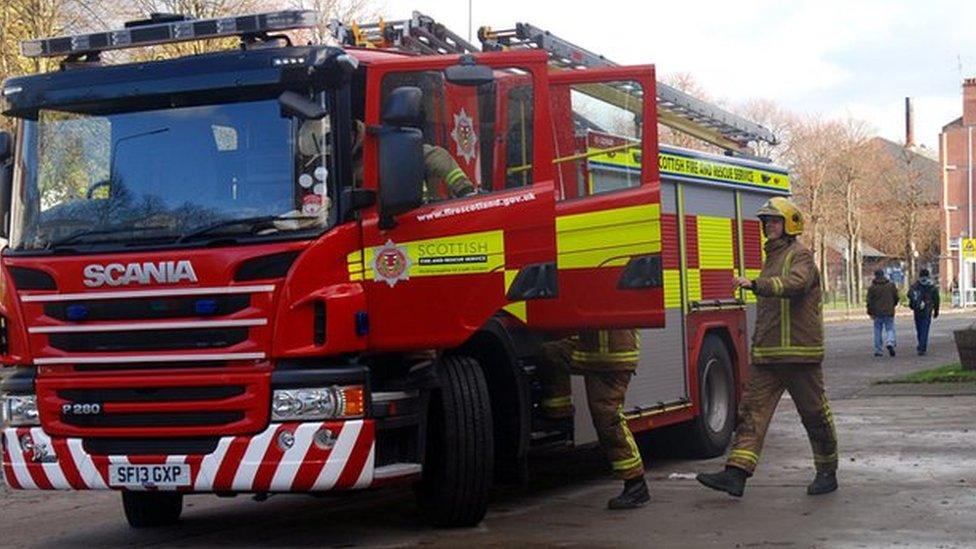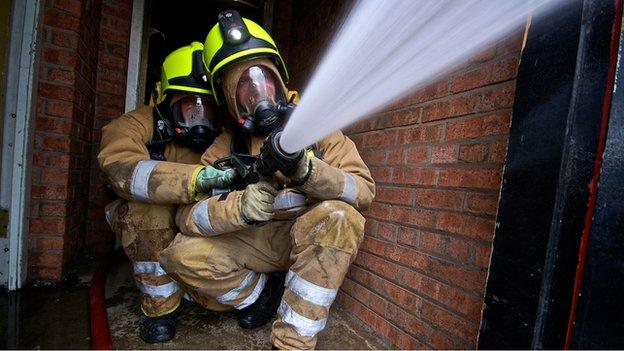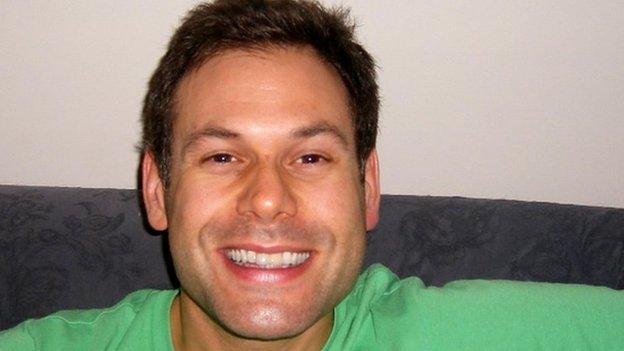Firefighters to respond to cardiac arrest cases
- Published

The trial is running in seven stations across the country
A national trial to see fire and rescue services in Scotland respond to out of hospital cardiac arrests has gone live.
Firefighters in selected areas have received enhanced training in life-support, through a joint partnership with the Scottish Ambulance Service.
The aim of the trial is to increase the survival rate of patients who suffer out of hospital cardiac arrests.
The trial is running at seven stations in West Lothian, East Lothian, Aberdeenshire and the Scottish Borders.
Every year in Scotland 3,500 people have an out of hospital cardiac arrest .
The current survival rate in Scotland is 4%, whilst in Scandinavian countries the chances of survival are 34%.
Scottish Fire and Rescue Service Chief Officer Alasdair Hay said: "Time is absolutely crucial to the chances of survival and we have been exploring with the Scottish Ambulance Service how we can support it in responding to out of hospital cardiac arrests.
"There are more than 350 fire stations across Scotland and many of these are in rural and remote communities where a paramedic could be a considerable distance away.
"In urban areas where we have stations with 24-hour staffing these crews could be available to immediately respond at times when our ambulance colleagues are busy attending other calls."
Training
Firefighters included in the trial will receive enhanced CPR training to better equip them to deliver the life-saving treatment until ambulance crews are able to reach the scene.
The trial aims to dramatically increase patients' survival chances and, working with the Scottish Government's Out of Hospital Cardiac Arrest Strategy, hopes to save as many as 1,000 lives by 2020.
So far, by targeting cardiac arrest cases with more ambulance crews and additional training, the Scottish Ambulance Service said it has recently achieved a 10% increase in the number of people being successfully resuscitated at scene.
Medical Director of the Scottish Ambulance Service Jim Ward said: "The average ambulance response time to a potentially life threatening emergency in Scotland is 6.6 minutes and we know that in cardiac arrest cases early CPR and defibrillation can improve survival.
"This trial with the Scottish Fire and Rescue Service supports the Scottish Government's strategy for improving survival from out of hospital cardiac arrest and aims to further increase early provision of CPR and defibrillation."
- Published21 May 2015

- Published20 March 2015
